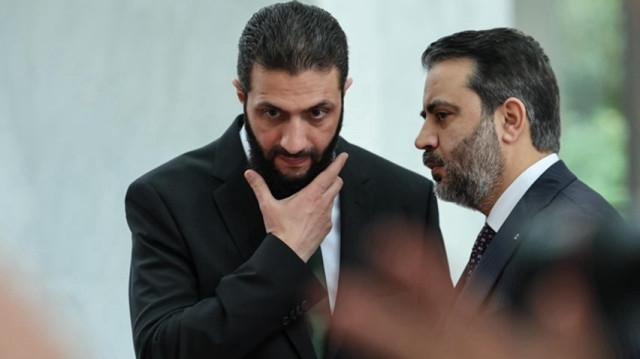
UAE's Abdullah bin Zayed, Syrian counterpart Asaad Hassan Al-Shibani discuss developments in Syria, stressing unity, collaboration as Arab nations step up engagement with Damascus
United Arab Emirates Foreign Minister Abdullah bin Zayed Al Nahyan held a phone call with his Syrian counterpart Asaad Hassan Al-Shibani on Monday to discuss recent developments in Syria and ways to strengthen bilateral ties.
According to the UAE's official news agency, the two reviewed “ways to enhance the strong fraternal relations between the two nations and peoples in areas of common interest.”
Bin Zayed reiterated UAE support for Syria's unity, sovereignty, and territorial integrity. He highlighted its commitment to all efforts aimed at achieving a comprehensive and inclusive transitional phase that fulfills the Syrian people's aspirations for security, development, and a dignified life.
He also expressed the UAE's belief in restoring optimism among Syrians, paving the way for a prosperous future.
This marks the first official UAE engagement with Syria's new leadership, as regional actors intensify diplomatic efforts toward Damascus.
Earlier Monday, Jordanian Foreign Minister Ayman Safadi and Qatar's Minister of State for Foreign Affairs Mohammed Al-Khulaifi visited the Syrian capital.
On Sunday, Turkish Foreign Minister Hakan Fidan met in Damascus with Ahmed al-Sharaa, the leader of Syria's new administration.
His historic visit marks the first by a Turkish foreign minister since Syrian factions ousted the Assad regime on Dec. 8.
In a joint press conference with Al-Sharaa, Fidan said that Ankara takes pride in being “on the right side of history in Syria.”
Since the fall of Assad's regime, Damascus has witnessed a steady influx of regional and international officials meeting with the new Syrian leadership, reflecting a shift in diplomatic dynamics.
Assad, Syria's leader for nearly 25 years, fled to Russia after anti-regime groups took control of Damascus on Dec. 8, ending the Baath Party regime which had been in power since 1963.
The takeover came after Hayat Tahrir al-Sham (HTS) fighters captured key cities in a lightning offensive that lasted less than two weeks.

